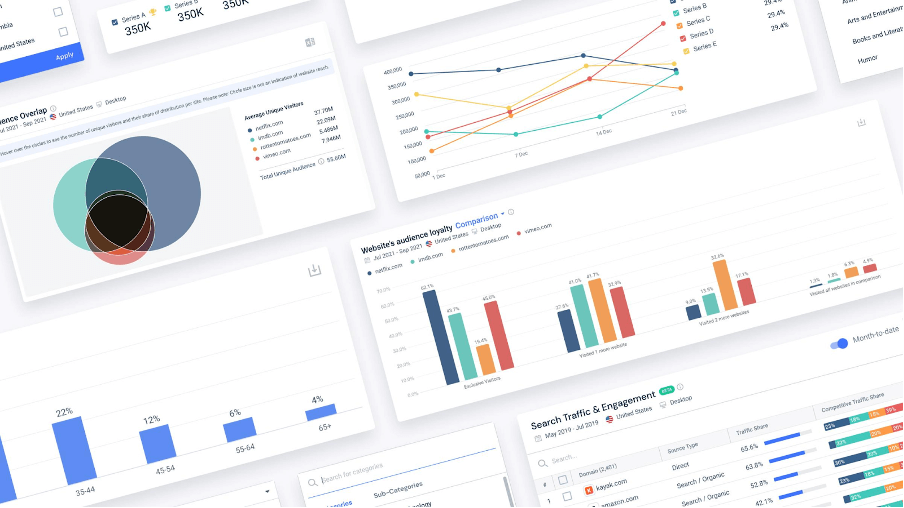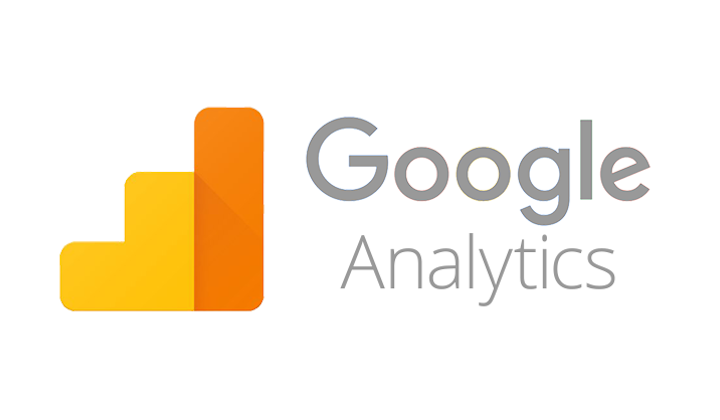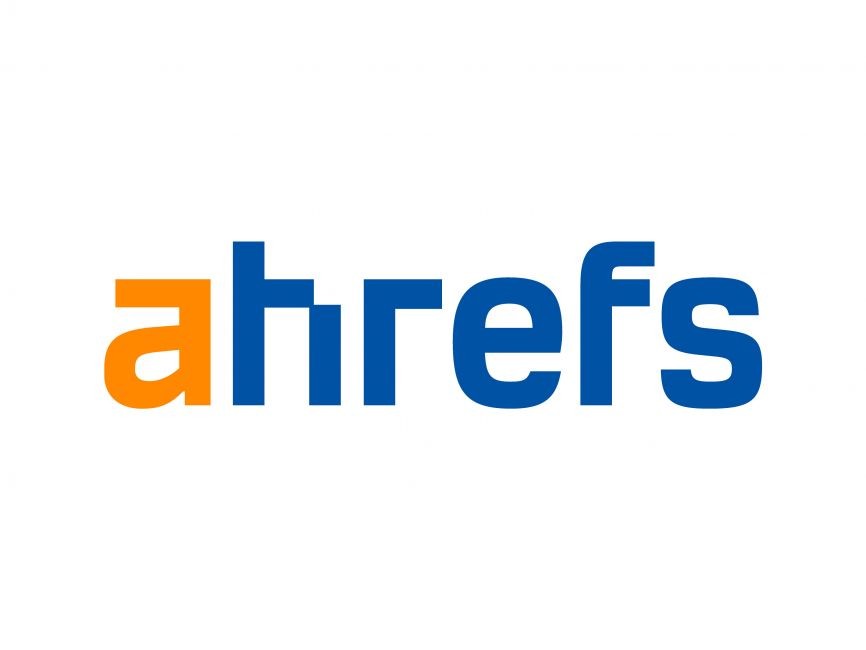Struggling to stand out in the crowded SaaS market? Website research tools are your cheat code. These digital Swiss Army knives help you crack the code of organic search, spy on competitors’ SEO keywords, and fix hidden issues killing your website traffic.
At VH-Info, we’ve tested tools like Semrush and Ahrefs to cut through the noise, so you can focus on what matters: turning data into growth.
Think of these tools as X-ray goggles for your website. They reveal which landing pages convert, which PPC campaigns flop, and even how rivals snag those top Google Search rankings.
For SaaS teams, this means ditching guesswork and building content strategies that drive sign-ups.
Whether you’re hunting low-competition keywords or analyzing backlink gaps, the right tool (like Google Analytics, for starters) gives you the edge. Ready to stop chasing trends and start setting them? Let’s dive in.
What Is A Website Research Tool?

A website research tool is specialized software that collects, analyzes, and presents data about websites – both yours and your competitors’.
These tools track essential metrics like website traffic, keyword rankings, backlinks, user behavior patterns, and technical SEO elements to provide a comprehensive view of online performance.
Today’s website research tools range from basic analytics platforms to sophisticated all-in-one solutions. Some focus primarily on organic search performance, tracking your rankings for targeted keywords and analyzing your SEO progress.
Others emphasize competitor analysis, helping you benchmark your site against others in your niche. Many tools combine multiple functionalities to provide a 360-degree view of your website’s performance.
Website research tools gather data through various methods, including website crawling, API connections, search engine result monitoring, and user tracking.
This raw data is then processed and presented in intuitive dashboards and reports, making it accessible for marketing teams to extract actionable insights that drive business decisions and marketing campaigns.
Why Use A Website Research Tool?

Implementing a robust website research tool offers numerous advantages for SaaS companies focused on growth.
First, these tools provide objective data on your SEO efforts, allowing you to track rankings for key terms and measure organic search performance over time. This data helps you identify which strategies are working and which need adjustment.
Website research tools also enable effective competitor analysis, revealing what’s driving your competitors’ success online. You can identify their top-performing keywords, analyze their backlink profiles, and benchmark your performance against industry standards.
This competitive intelligence helps you spot gaps in your strategy and opportunities for growth that might otherwise remain hidden.
Additionally, these tools facilitate data-driven content creation through comprehensive keyword research capabilities.
By identifying high search volume keywords with manageable competition, you can develop content that attracts qualified traffic. The keyword suggestions provided help you target terms your audience is actively searching for, rather than guessing what might work.
For PPC campaigns, website research tools offer invaluable insights on keyword CPC, competition levels, and potential ROI. This information helps optimize ad spending and maximize campaign performance across Google Ads and other platforms.
With the right tool, you can transform your digital marketing efforts from costly experiments to profitable channels, driving consistent results.
Key Features To Look For In A Website Research Tool

When picking a website research tool, think about some important features.
Data Accuracy
The foundation of any effective website research tool is accurate data.
Without reliable information, even the most sophisticated analysis becomes meaningless. When evaluating tools, verify data accuracy by comparing results across multiple platforms and checking for consistency with data from Google Analytics or Google Search Console.
The best tools maintain extensive databases that are regularly updated to ensure you’re working with current information. They employ sophisticated crawling technology to ensure comprehensive coverage of the web.
Look for tools that clearly explain their data collection methodologies and update frequencies to ensure you’re getting quality insights.
Tools that provide access to historical data offer additional value by enabling trend analysis and pattern recognition.
The ability to track changes over time helps identify seasonal fluctuations and long-term growth trajectories in organic search performance. This historical perspective proves important for strategic planning and performance evaluation.
Reporting and Analytics
Effective reporting transforms raw data into actionable insights.
Top website research tools offer customizable dashboards that present key metrics at a glance. These visual representations make complex data accessible to stakeholders across your organization, from technical SEO specialists to executives.
Advanced analytics capabilities allow for in-depth examination of specific metrics.
The ability to segment data by various dimensions (device type, geographic location, referral source, etc.) reveals patterns that might otherwise remain hidden. These detailed insights enable targeted optimizations that produce measurable results for your SaaS business. Export functionality is another critical reporting feature to consider. The ability to download data in various formats facilitates integration with other business intelligence tools and enables comprehensive analysis.
Regular automated reports keep team members informed without requiring manual data collection, allowing more time for strategy and implementation.
User-Friendliness
Even the most powerful tool becomes ineffective if your team can’t use it properly.
An intuitive interface reduces the learning curve and ensures widespread adoption within your organization. The best tools balance comprehensive functionality with user-friendly design that makes complex data accessible.
Look for tools that offer structured onboarding processes and accessible support resources. Video tutorials, knowledge bases, and responsive customer service significantly enhance the user experience.
These resources help new users quickly become proficient and allow experienced users to maximize the tool’s capabilities.
Integration capabilities also contribute significantly to user-friendliness. Tools that connect seamlessly with your existing technology stack streamline workflows and enhance productivity.
API access enables custom implementations that address your specific business needs, ensuring the tool adapts to your processes rather than forcing you to adapt to it.
Top Website Research Tools On The Market

The world of digital marketing has many different website research tools. Each tool has its own strengths and features. Choosing the right one relies on what your business needs, how much you can spend, and how skilled you are with technology.
Here are some of the top website research tools. These can boost your online strategies and help you get ahead of the competition.
Google Analytics

Google Analytics remains the foundation of website research for organizations of all sizes.
This free tool provides essential metrics on website traffic, user behavior, and conversion performance. Its integration with other Google products like Google Ads and Google Search Console creates a powerful ecosystem for digital marketers.
The latest version, Google Analytics 4, introduces enhanced machine learning capabilities and cross-platform tracking.
These advancements enable a more sophisticated analysis of the customer journey across multiple touchpoints. While the learning curve can be steep, Google Analytics offers tremendous value for SaaS companies seeking to understand their website performance.
For maximum benefit, implement enhanced tracking and set up goal conversions aligned with your business objectives. These configurations transform Google Analytics from a basic traffic counter into a comprehensive business intelligence tool that drives marketing decisions.
Matomo (Formerly Piwik)

Matomo offers an open-source alternative to Google Analytics with a focus on data privacy and ownership.
This self-hosted solution gives you complete control over your analytics data, addressing privacy concerns associated with third-party tracking tools. For SaaS companies with strict data governance requirements, Matomo provides a compelling option.
The tool offers real-time visitor tracking, heatmaps, form analytics, and A/B testing capabilities.
These features provide comprehensive insights into user behavior and website performance. The open-source nature of Matomo also enables extensive customization through plugins and API access.
While Matomo requires more technical resources to implement and maintain than cloud-based alternatives, the benefits of data ownership often justify the investment for privacy-conscious organizations.
Semrush

Semrush stands as a comprehensive digital marketing suite with powerful website research capabilities.
The platform excels in competitive analysis, revealing your competitors’ top-performing keywords, backlink sources, and content strategies. This competitive intelligence helps identify opportunities for improvement and differentiation.
The keyword research functionality within Semrush enables strategic content planning based on search volume, keyword difficulty, and CPC data. The related keywords feature uncovers semantic variations that expand your targeting options.
For content marketers, these insights drive the creation of high-performing assets that attract qualified traffic.
Semrush also offers technical SEO audits, backlink analysis, and position tracking. These tools help identify and resolve issues affecting your website’s performance in search results.
The comprehensive nature of Semrush makes it suitable for teams managing multiple aspects of digital marketing.
Ahrefs

Ahrefs has evolved from a backlink analysis tool into a complete SEO platform with extensive website research capabilities.
The tool’s Site Explorer provides detailed insights into organic traffic, top-performing content, and keyword rankings. These metrics help evaluate your website’s current performance and identify growth opportunities.
The backlink analysis remains Ahrefs’ standout feature, offering unparalleled insights into your link profile and competitor backlink strategies. For SaaS companies investing in link building, this functionality proves invaluable for identifying high-quality link opportunities and monitoring campaign results.
Ahrefs’ Content Explorer identifies popular content within your niche, revealing topics that resonate with your target audience.
This data informs content creation strategies that align with demonstrated user interests. When combined with the Keywords Explorer tool, Ahrefs provides a complete workflow for SEO-driven content marketing.
Similarweb

Similarweb specializes in competitive intelligence, offering insights into website traffic, engagement metrics, and audience demographics.
The platform excels at benchmarking your performance against competitors and industry averages. These comparisons provide context for your metrics and highlight areas requiring attention.
The tool’s traffic source analysis reveals which channels drive visitors to your website and your competitors’ sites.
This information helps optimize your channel strategy and identify untapped traffic opportunities. The ability to analyze referral traffic uncovers potential partnership and guest posting opportunities.
Similarweb also tracks keyword performance and PPC campaigns, enabling comprehensive analysis of your search marketing efforts. The audience insights feature provides valuable demographic and interest data for persona development and targeting refinement.
Hotjar

Hotjar focuses on user experience analysis through heatmaps, session recordings, and user feedback tools. While not a traditional SEO research tool, Hotjar provides important insights into how visitors interact with your website.
Understanding user behavior helps optimize conversion paths and improve overall website effectiveness.
The heatmap functionality visualizes click patterns, scroll depth, and movement tracking across your pages.
These visual representations reveal which elements attract attention and which go unnoticed. Session recordings capture actual user interactions, providing qualitative insights that complement quantitative analytics data.
Hotjar’s feedback polls and surveys collect direct input from your visitors, revealing pain points and opportunities for improvement.
This voice-of-customer data proves invaluable for user-centered website optimization. When combined with traditional analytics, Hotjar creates a complete picture of website performance.
Mixpanel

Mixpanel specializes in product analytics, making it particularly relevant for SaaS companies.
The platform tracks user interactions within your application, revealing how customers engage with specific features. These insights help optimize the user experience and inform product development priorities.
The cohort analysis functionality identifies patterns in user behavior over time, highlighting factors that contribute to retention or churn. Funnel analysis tracks conversion through multi-step processes, pinpointing drop-off points that require attention.
These specialized analyses complement traditional website metrics with product-specific insights.
Mixpanel’s A/B testing capabilities enable data-driven optimization of your user interface and feature implementations. The ability to segment users based on behavior and attributes facilitates personalized marketing and product experiences.
For SaaS companies, these capabilities provide a competitive advantage through enhanced user understanding.
Woopra

Woopra delivers customer journey analytics with a focus on individual user tracking.
This approach provides granular insights into how specific customer segments interact with your website and product. The ability to follow individual journeys reveals patterns that aggregate data might miss.
The platform excels at connecting website behavior with other customer touchpoints, creating a comprehensive view of the customer experience. This unified approach helps break down silos between marketing, sales, and customer success teams.
For SaaS companies seeking to optimize the entire customer lifecycle, Woopra offers valuable perspective.
Woopra’s automation capabilities enable triggered actions based on specific user behaviors. These automated responses create personalized experiences without manual intervention. The real-time nature of Woopra’s analytics allows immediate response to changing user patterns.
AnswerThePublic

AnswerThePublic focuses specifically on question-based keyword research.
The tool aggregates questions people ask about specific topics, organizing them into visual representations. This question-centric approach reveals informational needs that traditional keyword research might miss.
For content marketers, AnswerThePublic provides direct insight into the questions your target audience is asking.
This information shapes content strategies that address actual user needs rather than presumed interests. The visual format makes the data accessible to team members without technical SEO expertise.
While narrower in scope than comprehensive SEO platforms, AnswerThePublic delivers unique value through its specialized focus.
When combined with broader keyword research tools, it creates a more complete picture of search intent and information needs within your target market.
Wappalyzer

Wappalyzer identifies the technologies used on websites, providing valuable technical insights for competitive analysis.
This browser extension and online tool detects content management systems, analytics tools, advertising networks, and other technical components. For technical SEO and competitive intelligence, these insights prove invaluable.
Understanding your competitors’ technology stack reveals potential advantages or limitations in their implementation.
This knowledge informs your own technology decisions and highlights potential differentiators. For SaaS companies targeting specific technology users, Wappalyzer helps identify websites using complementary solutions.
While focused on technical aspects rather than marketing metrics, Wappalyzer provides context that enhances other research efforts. The tool’s simplicity and immediate results make it accessible to team members without deep technical expertise.
How To Choose The Right Website Research Tool For Your Needs?

Selecting the optimal website research tool starts with clearly defining your specific objectives.
Are you primarily focused on improving organic search rankings, analyzing user behavior, or monitoring competitors? Different tools excel in different areas, and understanding your priorities helps narrow the field of options.
Consider your team’s technical expertise and available resources. Some tools require significant configuration and ongoing management, while others offer more turnkey solutions. The most powerful tool becomes ineffective if your team cannot properly implement and utilize it.
Look for options that match your team’s capabilities or include adequate support resources.
Budget constraints naturally influence tool selection. Most premium tools offer tiered pricing based on usage volumes or feature access. Evaluate potential ROI rather than focusing solely on cost.
Free tools like Google Analytics and Google Search Console provide substantial value, but premium tools often deliver capabilities that justify their cost through improved performance and efficiency.
Integration capabilities represent another important consideration. Tools that connect seamlessly with your existing marketing technology stack create efficiency and data consistency.
Evaluate available APIs and native integrations with your CRM, email marketing platform, and other critical systems. These connections enhance workflow and enable more sophisticated analysis across multiple data sources.
Consider conducting limited trials of promising tools before making long-term commitments. Most platforms offer free trials or money-back guarantees that allow hands-on evaluation.
During these trials, test the specific use cases most relevant to your business rather than exploring all available features. This focused approach provides meaningful insights into how the tool will perform for your particular needs.
Best Practices For Using Website Research Tools

Implement regular analysis schedules to maintain continuous improvement. Weekly reviews of key performance indicators, monthly deep dives into specific metrics, and quarterly strategic assessments create a structured approach to data utilization.
These regular checkpoints ensure insights translate into action rather than accumulating unused.
Combine multiple tools for comprehensive perspective. No single platform provides complete coverage of all website performance aspects.
For example, use Google Analytics for user behavior analysis, Semrush or Ahrefs for SEO research, and Hotjar for user experience insights. This multi-tool approach creates a more complete picture of your website’s performance.
Focus on actionable metrics rather than vanity statistics. Increased traffic holds little value if it doesn’t convert.
Prioritize metrics directly tied to business outcomes, such as conversion rates, qualified lead generation, and customer acquisition costs. This business-centric approach ensures your optimization efforts deliver meaningful results.
Maintain consistent tracking parameters to ensure reliable trend analysis. Changes to measurement methodology create data discontinuities that complicate performance evaluation.
Document your implementation approach and avoid unnecessary modifications to tracking configurations. When changes become necessary, note them clearly in your reporting to provide context for metric shifts.
Share insights across departments to maximize their impact. Website performance affects marketing, sales, product development, and customer success teams.
Regular reports tailored to different stakeholders ensure relevant insights reach the people best positioned to act on them. This collaborative approach transforms website research from a marketing function into a company-wide resource.
FAQ’s:
What Are The Best Free Website Research Tools Available?
Google Analytics and Google Search Console top the list for tracking website traffic and SEO health. Use Google Keyword Planner for keyword research and search volume insights.
Free tiers of tools like Semrush or Ahrefs offer limited competitor analysis and backlink tracking. AnswerThePublic helps find related queries, while Wappalyzer detects technical SEO tools on competitor sites—all without spending a dollar.
Are Website Research Tools Suitable For Small Businesses?
Absolutely! Many tools offer free plans or affordable tiers tailored for small teams. Focus on keyword research tools like Google Keyword Planner or Ubersuggest to find SEO keywords without breaking the bank.
Even a basic competitor analysis helps you spot gaps in your digital marketing strategy compared to bigger players.
How Do Website Research Tools Improve SEO?
They uncover popular keywords with high search volume, help fix technical SEO issues like slow loading speeds, and track organic search rankings.
Tools like Ahrefs reveal backlink opportunities, while SEMrush’s keyword explorer identifies gaps in your SEO strategy compared to competitors.
Can Website Research Tools Help Identify Competitor Strategies?
Yes! See which SEO keywords rivals rank for, their top landing pages, and PPC campaigns on Google Ads.
Tools like Similarweb show their website traffic sources, while Semrush exposes their backlink networks. This helps you replicate wins and exploit gaps in their marketing campaigns.
What Types Of Data Can I Gather Using A Website Research Tool?
Track website traffic trends, user behavior (like clicks via Hotjar), and keyword rankings.
Analyze social media referrals, spot technical SEO issues, and compare your organic search performance against competitors. Tools like Mixpanel even reveal how users navigate your site.
How Accurate Is The Data Provided By These Tools?
Keyword research data (like search volume) and competitor analysis are estimates but reliable for trends. Cross-check with Google Analytics for your own website traffic. Free tools may have limits, but paid options like Ahrefs offer sharper data accuracy for PPC or SEO planning.
Can These Tools Help With Competitor Analysis?
Definitely! Uncover rivals’ top SEO keywords, landing pages, and backlink sources.
Tools like Semrush show their Google Ads spend, while Wappalyzer reveals their technical SEO setup. Use these insights to refine your content strategy and outrank them in organic search.
Conclusion
Website research tools provide SaaS companies with the data needed to make informed marketing decisions. The right tools transform guesswork into strategic action, improving efficiency and effectiveness across multiple marketing dimensions.
From identifying high-potential keywords to analyzing user behavior and monitoring competitor strategies, these tools deliver actionable insights that drive measurable results.
The selection process requires careful consideration of your specific needs, available resources, and business objectives.
While many options exist, from free basics to comprehensive premium platforms, the value lies not in the tools themselves but in how effectively you apply the insights they provide.
Regular analysis, cross-functional collaboration, and consistent implementation create the foundation for data-driven growth.
At VH-Info, we help SaaS companies maximize the value of their website research efforts through strategic link building and content optimization. Our specialized expertise complements your internal capabilities, creating synergies that accelerate performance improvements.
For SaaS businesses seeking to enhance their organic visibility and authority, professional support amplifies the impact of your website research investments.



